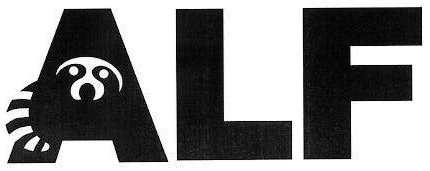
The following interview is done with Ann Berlin, the spokesperson for The Animal Liberation Front website...

The following interview is done with Ann Berlin, the spokesperson for The Animal Liberation Front website...
Could you explain to us the process of vivisection and illuminate to us what type of animals they force this utter cruelty upon?
How can they possibly justify its use? 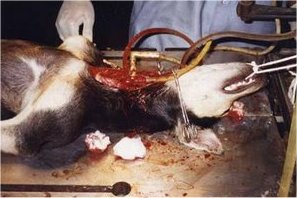
Rather than divide vivisection, dissection and animal tests into separate categories I will use them interchangeably to mean all of the above. The following links provide answers about laboratory animals and experimentation:
www.animalliberationfront.com/Philosophy/Animal%20Testing/Vivisection/AVivIndx.htm
There is a mountain of absolutely deplorable videos on the internet depicting slaughterhouses and breeding farms. Scenes of men beating or torturing animals before butchering them. Horrible conditions where animals like chickens don't even have space to move their cages are so small. Some are packed three or four a cage, tightly pressed against one another, their beaks cut off so they can't peck their cell-mates. Or animals so sick and weak they cannot walk up the ramp to be slaughtered, so humans with electrical rods shock them where they lay, or even drive forklifts into them. These examples are only the tip of the iceberg. Can you tell us about any images like this that have stuck in your mind?
Is there a country in this world that bans using animals for research? Which countries would you say are the friendliest to animals? And which are the least?
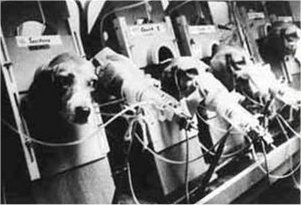 Can you estimate the number of animals that are killed annually in the name of science? I heard one estimate at fifteen million. But that doesn't even cover nearly everything, since animals such as mice do not have to be counted under law. It is hard to imagine the untold millions imprisoned in laboratories around the world...
Can you estimate the number of animals that are killed annually in the name of science? I heard one estimate at fifteen million. But that doesn't even cover nearly everything, since animals such as mice do not have to be counted under law. It is hard to imagine the untold millions imprisoned in laboratories around the world...
No. Some say that worldwide 22 animals die every second in labs. There are many estimates of tests done, typically estimates in only one country, or for only one reason. For example it is estimated that six million vertebrate animals are dissected yearly in US High Schools alone.
After watching the movie "Earthlings", and having most of it burn into my mind, I no longer watch other videos to remind me of the cruelty of factory farms.
The UK banned using animals to test household products.
I am uncertain how to rate "friendliest"? The poorest countries eat the least meat (but it is not a moral decision). India, especially Hindus, may have the most compassion for animals as beings. England may have the most animal rights activists. Italy passed laws giving companion animals some rights - a dog must be walked daily, etc. Germany was the first country to place animal rights into its constitution. New Zealand just banned exotic animals in circuses, Bolivia banned animals from travelling circuses, and Brazil banned animal circuses. Some European countries banned seal fur. Today there are animals rights activists in most countries, including China and Japan. As a result there is more awareness of animals as sentient beings, and consequently more laws to protect animals every month.
 One of the most despicable videos I've seen is one that takes place on the shores of Japan. Fisherman have herded 100's of dolphins into the shallows of a bay where they beach them and slaughter them. The whole bay is red with blood and the air filled with their screams. Dolphins are said to be one of the smartest mammals in the animal kingdom, they've even been known to rescue humans, defending them against shark attacks in some cases. Your thoughts on all of this?
One of the most despicable videos I've seen is one that takes place on the shores of Japan. Fisherman have herded 100's of dolphins into the shallows of a bay where they beach them and slaughter them. The whole bay is red with blood and the air filled with their screams. Dolphins are said to be one of the smartest mammals in the animal kingdom, they've even been known to rescue humans, defending them against shark attacks in some cases. Your thoughts on all of this?
You might enjoy the interview with The Cove's Richard O'Barry, here:
Kora is now in a safe home.
Slides 89-91 in the following presentation will answer the first question:  ALF receives a lot of negative media attention. There's no shortage of footage on youtube.com, for example, of news casts depicting raided research labs or burned or destroyed property of those that harm animals. Do you feel that these acts of defiance help your cause? Is ALF primarily action oriented or do its adherents also involve themselves in changing government laws?
ALF receives a lot of negative media attention. There's no shortage of footage on youtube.com, for example, of news casts depicting raided research labs or burned or destroyed property of those that harm animals. Do you feel that these acts of defiance help your cause? Is ALF primarily action oriented or do its adherents also involve themselves in changing government laws?
With the amount of money that is generated through testing on animals, such as pharmaceuticals and cosmetics, it would seem that things aren't going to change anytime soon. However, if more people learned the truth about these evils, maybe the animals still have a chance. Yet, sadly, many humans simply don't care enough to speak out. They are too selfish and desensitized. What do you think it would take to truly change things and get people to act in unison? Do you think if some of these atrocious videos were broadcast on international television, uncensored, for all the world to see, it would change anything?
Is it true that the government considers ALF terrorists? Exactly what governments consider ALF this? How do they classify destruction of property, trespassing, etc., as terrorism?
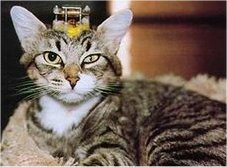
Like other social movements a "critical mass" must be achieved before laws are changed. Twenty years ago, there was only one person per 100,000 with any concern for animal rights beyond that of their family pet. That percentage increased exponentially and it is still growing. When enough people realize that the pig they eat is as sentient and loving of life as their dog they will be less likely to tolerate pigs being killed for food.
That is a debate about words and definitions. One's answer tells you more about that person than it tells you about anything else.
A recent article gives one opinion:
[Above: Click on the above image to see the full horror]
Lastly, how do you imagine ALF will be viewed, say, a century from now? Will humanity ever lose its callous selfishness and learn to live in harmony with other creatures on this planet?
Animal liberation is the culmination of a vast historical learning process whereby human beings gradually realize that arguments justifying hierarchy, inequality, and discrimination of any kind are arbitrary, baseless, and fallacious. Rev. Dr. Martin Luther King, Jr. said that the arc of history is long, but that it bends toward justice and compassion. (King’s wife and son, Coretta and Dexter Scott King, are vegans.)
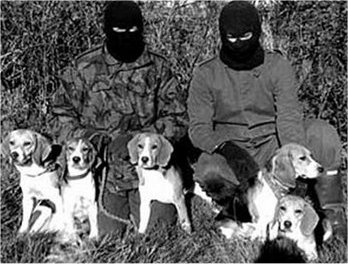
[F R E E D O M !]
